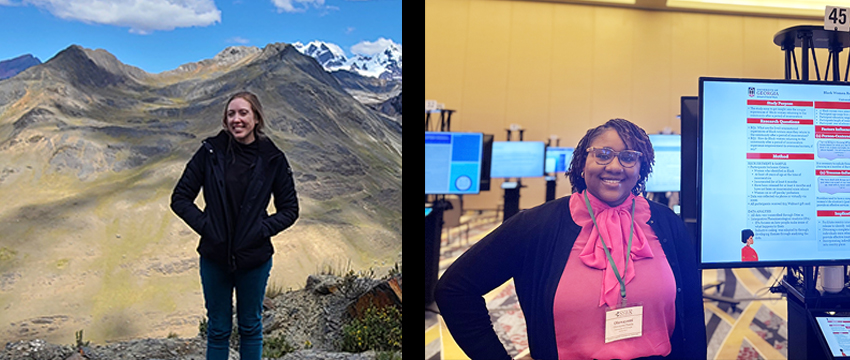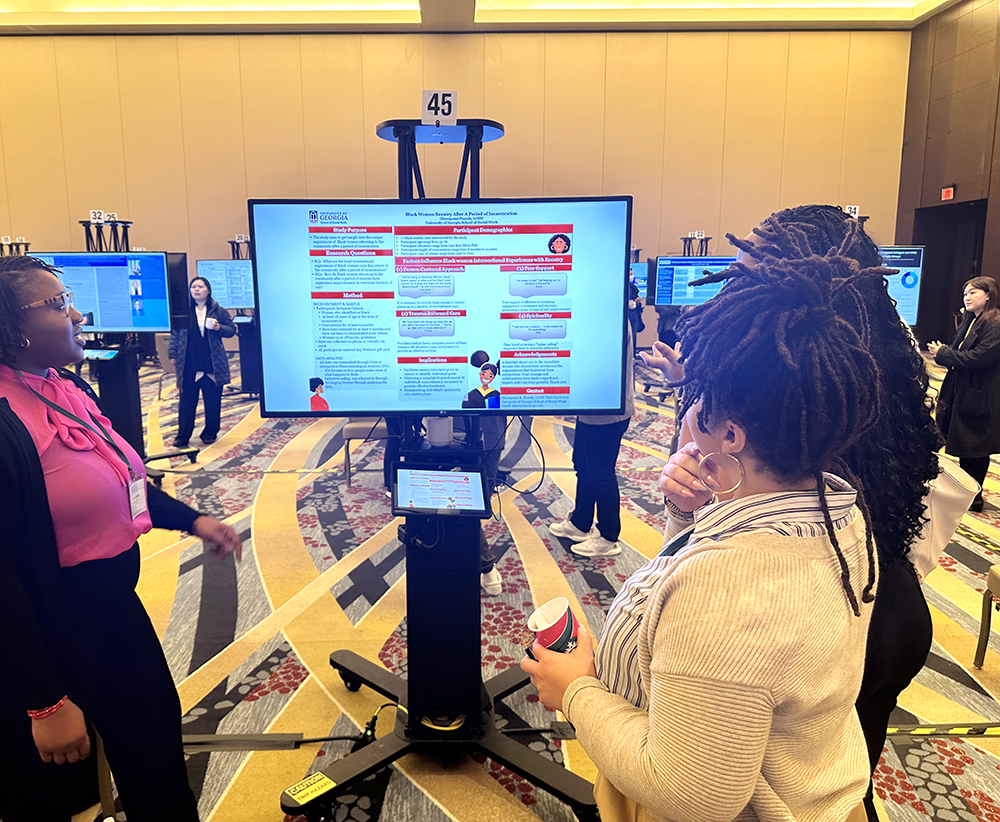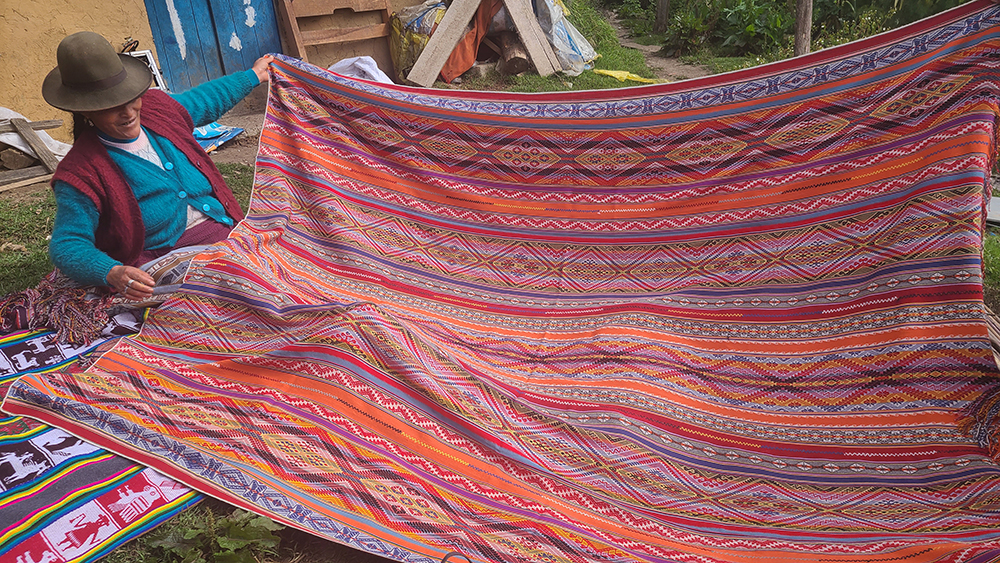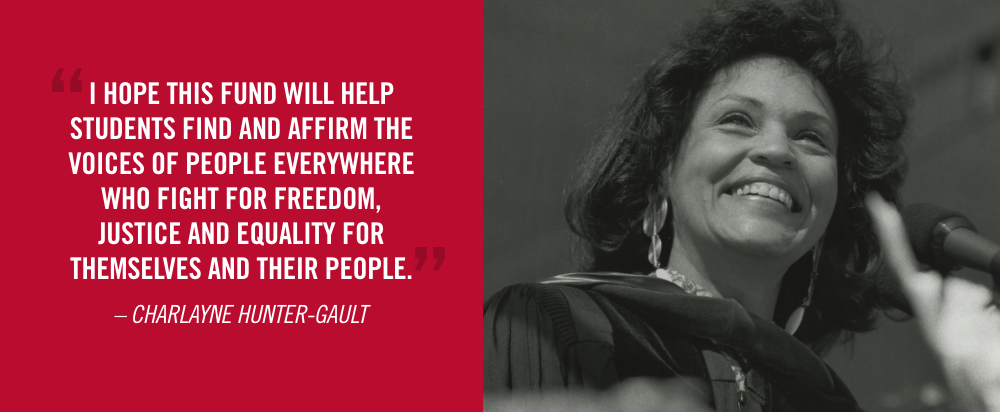Giving Voice to the Voiceless celebrates past grants; seeks future projects to support

Giving Voice to the Voiceless celebrates past grants; seeks future projects to support
When Charlayne Hunter-Gault (ABJ ’63) and Ron Gault created the Giving Voice to the Voiceless fund in 2017, they sought to impact not only local communities but also projects with far-reaching, international goals.
Two projects awarded last year covered these missions, and Giving Voice to the Voiceless is looking for applicants for a new round of grants.

“Being a Giving Voice to the Voiceless recipient signifies a commitment to amplifying marginalized voices and advocating for social justice,” said Oluwayomi Paseda, a Ph.D. student in the School of Social Work and one of the grant recipients in 2023. “As a recipient of the grant, I appreciate the opportunity to contribute to fostering meaningful change and addressing the silencing of voices among those in need of support within our society.”
GVV awards University of Georgia students and faculty funds supporting projects centered on marginalized people or issues, advancing social justice and creating bonds of empathy and understanding.
Hunter-Gault, who has been guided by these goals throughout her service as a journalist for more than 50 years, is motivated by this vision: “I hope this fund will help students find and affirm the voices of people everywhere who fight for freedom, justice and equality for themselves and their people.”
Paseda used the grant money awarded to her last year to fund needs for her dissertation project including software for transcription, travel expenses for presentations, and the creation of a summary highlighting participant narratives. Paseda’s research focuses on the reentry experiences of Black women following periods of incarceration.
“The funding provided by the grant was instrumental in amplifying the voices of a deeply marginalized community—Black women with criminal histories,” Paseda explained. “It enabled me to highlight the complex challenges these women encounter due to their intersecting marginalized identities.”
Katie Foster, who just earned her Ph.D. in integrative conservation and anthropology, was another grant recipient last year and used the funds toward travel and creating a StoryMap for her research in Peru, South America.

Foster’s research supports people in Latin America to help them understand and fight for their internationally-recognized rights to their lands and waters. Her research focuses on processes needed to communicate informed consent policy to indigenous people affected by a proposed law or project that might have societal or environmental impacts on their communities. For example, a mining company might not operate as human rights law would dictate, and it is important for communities to understand their rights in a language with which they are familiar. Foster’s research involves interviewing local people who would be affected by the actions of these companies and explaining to them the advantages and disadvantages of these actions. Funds from the GVV grant allowed her to travel to Peru and work through a translator to communicate in a way that is informative and accessible to these communities. She then was able to create a StoryMap that could be applied to communicating and understanding these rights in other communities.
“I am so grateful for this opportunity and proud to be one of the recipients, said Foster, who is working in post-doctorate research now for the Network for Engineering with Nature. “There is such a strong legacy that Charlayne and Ron have created. Whenthe recipients were announced, I thought the field was really an amazing group of projects and people.”
It’s these kinds of opportunities that really highlight the wonderful work being done across UGA. I am just so grateful to be part of it.” — Katie Foster
The projects funded by GVV have been varied in scope and include projects ranging from the UGA Black Alumni Oral History Project and Amplifying the Voices of Transgender and Gender Nonconforming Latinx Communities to helping support the short film, “Cardoamom,” about a South Asian immigrant living in an abusive marriage and supporting research through the Civic Laboratory for Environmental Action Research (CLEAR), an indigenous-led, interdisciplinary, feminist and anticolonial marine science laboratory, among others.
Author: Sarah Freeman, freemans@uga.edu
The application for this year’s Giving Voice for the Voiceless grants is open through March 15, 2024. Applicants are asked to submit: • A brief description of their project or story • How it will give voice to the voiceless •A simple budget to show how funds will be used • Hoped-for outcomes, including ideas for sharing the project with audiences
Apply for a Giving Voice to the Voiceless Grant
